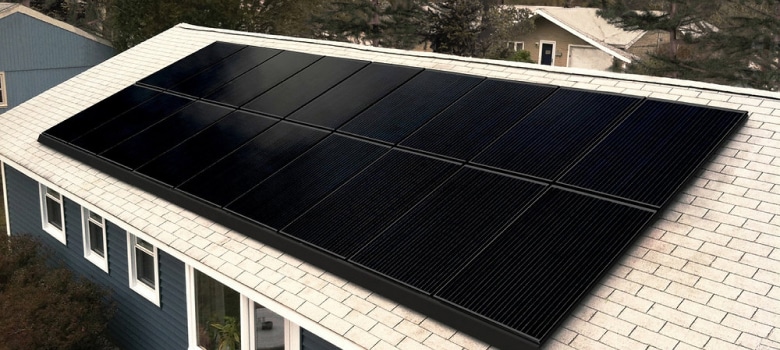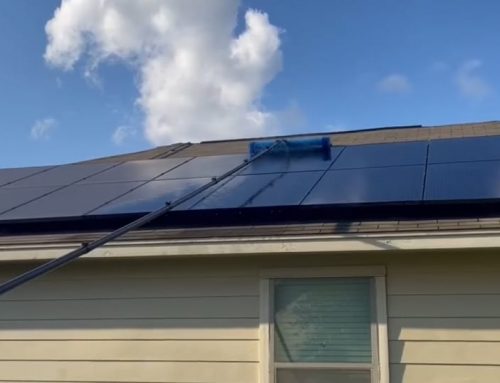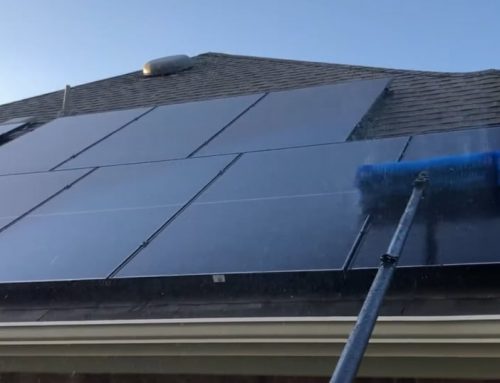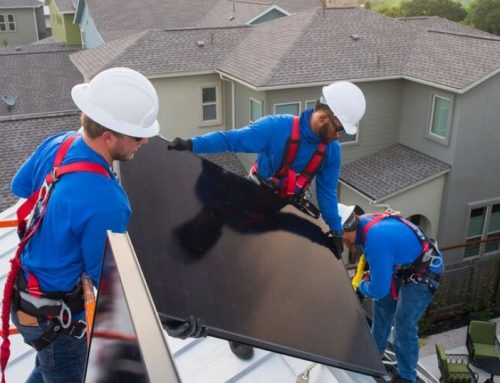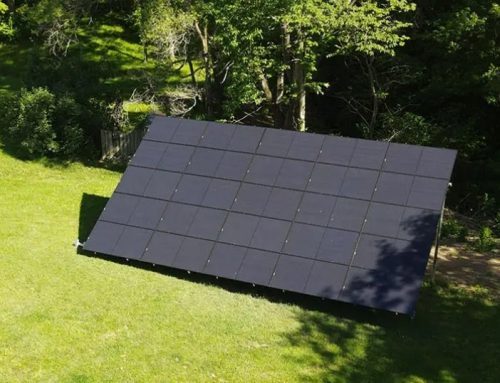In a world where sustainable living is increasingly sought-after, understanding the potential and limitations of solar energy storage becomes crucial.
In this article, we’ll answer the question,” How long can solar panels store energy?”.
To help you upgrade your knowledge, we’ll cover:
- Solar storage 101
- Top factors that influence energy storage performance
- The lifespan of solar energy storage solutions
- How to maximise your returns
Whether you’re a homeowner looking to slash your energy bills, a business owner looking to reduce operational costs, or simply curious, this article is tailored for you.
Let’s get right into it.
ENERGY BUSTER SUMMARY:
|
Solar Storage 101: Time, Capacity, and Adelaide’s Sunshine
Understanding the basics of solar energy storage is key to appreciating its value.
The capacity to store renewable energy and the duration for which it can be stored are two pivotal aspects that determine the panel’s effectiveness.
How Solar Panels Work
They capture sunlight and convert it into electricity. This electricity can either be used immediately or stored in batteries for later use. The capacity to store energy is primarily dependent on the battery’s size and technology.
Typically, these batteries are designed to store enough power to keep your home or business running overnight or during short periods of low sunlight.
Storage Duration
Contrary to common belief, panels themselves do not store energy for extended periods. Instead, it’s the batteries that do the heavy lifting.
The latest models can store energy for anywhere between 5 to 15 hours. This duration varies based on the battery’s capacity and the energy consumption of the household or business.
[POPULAR] Best Solar Energy Storage Methods
Adelaide’s Advantage
Adelaide’s geographical location delivers plenty of sunny days, averaging about 2,500 hours of sunshine per year. This abundant sunlight means more energy can be harvested and stored.
Modern systems in Adelaide are not just capable of meeting daily energy requirements but also storing surplus energy.
Are my Solar Panels Pointing the Right Way?
Capacity Considerations
The capacity is usually measured in kilowatt-hours (kWh).
A typical home in Adelaide might require a battery with a capacity of around 5-10 kWh, but this can vary depending on energy usage patterns and the size of the solar system.
What Influences Solar Energy Storage?
Solar Panel Efficiency
- Technology Matters: Higher efficiency panels convert more sunlight into electricity, leading to better energy production.
- Advancements Over Time: Technological advancements mean newer models are more efficient. This translates to more energy generation even in smaller spaces.
Battery Storage Capacity
- Size and Technology: The capacity of the battery determines how much energy can be stored. Larger, more technologically advanced batteries can store more energy for longer periods.
- Matching Needs: Choosing the right battery size is essential. It should align with your solar output and your energy consumption needs.
Weather and Climate Conditions
- Sunny Days Count: More sunlight means more energy can be captured and stored. However, during cloudy or rainy days, energy production can decrease.
- Temperature Effects: Extreme temperatures, both high and low, can affect the efficiency. Fortunately, Adelaide’s climate is generally conducive to optimal functioning.
Energy Consumption Patterns
- Usage Matters: How and when you use energy impacts how long stored solar energy lasts. High consumption can drain batteries quickly.
- Smart Management: Implementing energy-efficient practices and devices can maximise the duration your renewable energy lasts.
System Maintenance and Care
- Regular Check-ups: Proper maintenance of panels and batteries ensures they operate at peak efficiency.
- Longevity and Performance: Regular cleaning and periodic professional inspections can prevent efficiency losses due to dirt accumulation or technical issues.
The Lifespan of Solar Energy Solutions
Solar Panel Lifespan
- Average Lifespan: They typically last between 25 to 30 years. However, this doesn’t mean they stop producing electricity after this period; rather, their efficiency decreases to about 80% of their original capacity.
- Durability Factors: High-quality panels and proper maintenance can extend their lifespan. In Adelaide’s climate, panels are less likely to be exposed to extreme conditions that could shorten their life.
Battery Lifespan
- Battery Longevity: They generally last between 5 to 15 years, depending on the type and brand.
- Usage and Care: The lifespan of a battery is also influenced by how often it’s charged and discharged, and how well it’s maintained.
Performance Over Time
- Efficiency Decline: Both panels and batteries experience a gradual decline in efficiency over their lifespan. This is a normal process due to wear and tear and exposure to environmental factors.
- Replacement Considerations: While panels may last for decades, batteries might need replacement at least once during the lifespan of the solar system.
Energy Production Estimates
- Daily Output: A typical 5kW system can produce around 20 kWh on a sunny day. However, this can vary based on factors like panel placement, angle, and weather conditions.
- Yearly Trends: Annually, Adelaide’s sunny climate can facilitate high energy production, making solar systems particularly effective.
Cost-Saving Tips for Solar Users
1. Opt for Quality Over Cost
- Invest in High-Efficiency Panels: While they may cost more upfront, high-efficiency panels generate more electricity over time, leading to greater savings.
- Choose Reliable Batteries: Investing in a high-quality battery ensures a longer lifespan and better storage capacity, offering more value for money.
2. Embrace Smart Energy Usage
- Peak Hours Usage: Utilise stored solar energy during peak tariff hours to avoid high electricity costs.
- Energy-Efficient Appliances: Invest in energy-efficient appliances to reduce overall energy consumption, stretching your stored solar energy further.
3. Regular Maintenance
- Keep Panels Clean: Regular cleaning of solar panels can prevent efficiency loss due to dirt and debris.
- Scheduled Check-ups: Annual maintenance checks can identify and rectify issues, prolonging the system’s lifespan.
4. Government Rebates and Incentives
- Stay Informed: Be aware of any state or federal rebates and incentives for solar panel installation, which can reduce the initial investment cost.
- Feed-in Tariffs: Take advantage of Adelaide’s feed-in tariffs by selling excess energy back to the grid, creating an additional income stream.
5. Optimal System Design
- Tailored Solutions: Work with a reputable provider to design a system that matches your specific energy needs and roof layout.
- Future-Proofing: Consider future energy needs and plan accordingly, allowing for potential system expansions.
6. Monitor Energy Usage
- Use Smart Monitoring: Employ smart monitoring systems to track energy production and usage, enabling more efficient energy management.
By following these tips, you can not only reduce your carbon footprint but also ensure your solar systems are as cost-effective as possible.
Key Takeaways and Your Next Steps
Let’s recap the essential points:
Efficiency and Lifespan:
- Panels typically last 25-30 years, with batteries lasting 5-15 years.
- Adelaide’s sunny climate enhances renewable energy production.
Storage Capacity:
- Battery storage capacity is crucial and varies based on technology and usage.
- Panels don’t store energy; batteries do, with a capacity ranging from 5 to 15 hours.
Cost-Effectiveness:
- Initial investment can be offset by long-term savings and government incentives.
- Smart energy usage and regular maintenance maximise returns.
Embracing renewable energy is a step towards a sustainable and cost-effective future. With Adelaide’s sunny climate and evolving technologies, now is a perfect time to make the switch.
Ready to Energise Your Future? Contact Energy Buster Today!
Are you inspired to take the next step towards a sustainable, cost-effective energy solution for your home or business?
The Energy Buster team is here to guide you through every stage of your journey.
Our team of experts brings years of experience in solar energy solutions, ensuring you get the best advice and the highest quality service.
We also understand that every client has unique needs. That’s why we offer personalised consultations to design a system that perfectly fits your requirements.
Get a competitive quote from us today and discover how affordable transitioning to solar can be.
Get in touch for personalised advice or a no-obligation quote. Let us help you unlock the full potential of renewable energy.
Or, Visit our information centre to explore more about our services, read client testimonials, and get a glimpse of what we offer.

